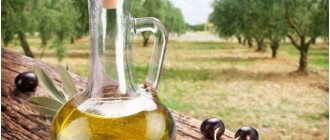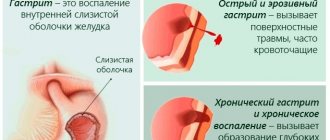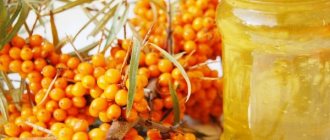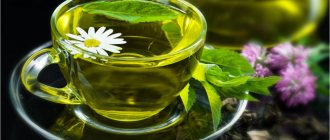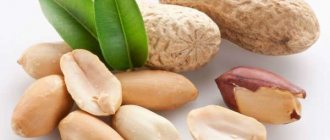When it comes to garlic, the health benefits are undeniable. Many people have known since childhood that the product helps fight viruses, bacteria and strengthens the immune system. Gourmets love adding sharp cloves to meat and fish dishes, soups, and sauces. And the arrows of the plant are fried in oil and pickled. However, if used incorrectly, garlic can cause more harm to the body than good. In this article you will find out whether it is worth including the product in your diet.
Chemical composition and nutritional value of garlic
Garlic is a medium-calorie product: 100 g of fresh cloves contains 140–150 kcal. The composition contains practically no fats, but contains proteins and sugars. Yet nutritionists do not recommend garlic snacks for those who want to lose weight, since their consumption increases the secretion of gastric juice and increases appetite.
The composition of the vegetable is very complex and varied. Scientists have discovered more than 400 chemical compounds in the cloves. Let's consider which of these substances can benefit the human body.
Vitamins
The composition of the cloves is dominated by B vitamins, especially B1, B5 and B6. They normalize fat metabolism in the body, participate in the production of hormones and hemoglobin in the blood.
There is quite a lot of nicotinic acid in garlic. This vitamin reduces the concentration of glucose in the blood and has a vasodilating effect. Nicotinic acid is often used to treat various skin lesions: allergic and photodermatitis, poorly healing wounds and ulcers.
Vitamins C and E are also found in the product. They improve the condition of blood vessels, skin, hair, and slow down the aging process.
Macro- and microelements
Garlic is rich in calcium, phosphorus and silicon - macroelements that are involved in the construction of bone tissue. It is not for nothing that the product is recommended to people over 40 years of age for the prevention of diseases of the musculoskeletal system.
The composition also contains the following substances:
- potassium – normalizes blood pressure;
- magnesium – strengthens the heart muscle;
- sulfur – destroys pathogenic bacteria;
- iron – increases hemoglobin production;
- iodine – prevents thyroid diseases;
- copper – improves the body’s absorption of proteins;
- selenium – strengthens the immune system;
- chromium – lowers blood sugar levels;
- zinc – stimulates tissue regeneration.
Macro- and microelements, unlike vitamins, are not destroyed even during heat treatment of garlic. Therefore, boiled, baked and even fried products will benefit the body.
Phytoncides
Garlic, like onions, contains volatile substances - phytoncides. They effectively destroy viruses, bacteria and fungi. Scientists have long discovered that garlic lovers are much less likely to get colds than other people.
The concentration of phytoncides is especially high in fresh vegetables. During storage, some of them evaporate. Heat treatment completely destroys phytoncides.
Allicin
Allicin is produced when garlic cells break down, such as when you use a garlic press. It is this that gives the cloves a sharp, specific smell.
Allicin has beneficial properties:
- prevents viruses from entering the human body;
- destroys bacteria, fungi;
- reduces the level of “bad” cholesterol in the blood;
- Protects body cells from damage by free radicals, reducing the risk of cancer.
However, in high doses the substance is toxic. In particular, allicin can negatively affect brain neurons.
Onions for gastritis
In the first days of exacerbation of the disease, it is not recommended to eat food. Are onions among the foods that are allowed for consumption or not? In fact, it is not advisable to use it.
It contains a large amount of essential oils, which cause acid levels to increase and this can lead to further flare-ups.
If you take onions, do so only after heat treatment.
The category of prohibited foods also includes green onions. It negatively affects the mucous membrane and can cause exacerbation.
Health Benefits of Garlic
People knew about the beneficial properties of garlic back in the 3rd millennium BC. e. The pharaohs ordered the product to be introduced into the diet of slaves who built the pyramids to increase physical endurance. In Greece, garlic was used to treat lung diseases, in Rome - bacterial infections, and in Medieval Europe - the plague. Modern scientists have studied in detail the chemical composition of this vegetable and have compiled an extensive list of indications for which it is useful to use.
For all
First of all, doctors recommend eating garlic to prevent cardiovascular diseases. The cloves bring the following benefits to the body:
- Reduce blood viscosity and prevent the formation of blood clots. It is the latter that are most often identified as the cause of heart attacks and strokes.
- They normalize the metabolism of triglycerides in the body and prevent cholesterol plaques from depositing on the walls of blood vessels. That is, garlic reduces the risk of atherosclerosis.
- Reduce blood pressure and normalize heart rate.
In the course of scientific research, scientists have discovered that garlic can reduce the risk of cancer, especially lung and prostate cancer in men. The vegetable is also well known for its antibacterial, antiviral and antifungal properties. With its help, you can speed up recovery from colds, upper respiratory tract diseases, intestinal infections, and thrush. In addition, the product prevents human infection with worms.
Garlic strengthens the immune system. It contains vitamins B, C and amino acids, which, when ingested, stimulate the production of protective antibodies.
If you want to avoid getting infected with ARVI during the cold season, prepare a medicinal tincture. Place the peeled cloves from one head of garlic into a glass container and pour in 500 ml of vodka. Place in a dark, dry place for 3 weeks. Shake the contents every day. Then filter the setting and store in the refrigerator. Drink 15 drops half an hour before meals 3 times a day.
For men
Garlic has been considered a strong aphrodisiac since ancient times. And modern doctors have confirmed this statement.
For men, the product has the following beneficial properties:
- saturates the body's cells with oxygen, dilates blood vessels and increases blood flow to the pelvic organs (as a result, potency improves);
- stimulates the production of the hormone testosterone, which has a positive effect on libido and physical endurance;
- prevents malignant neoplasms in the prostate gland.
Thanks to the presence of zinc, garlic will help solve the problem of infertility. This microelement enhances sperm motility and increases the chances of a successful conception. Back in Ancient Greece, the product was used to increase male fertility.
For women
For many women, it is important to maintain beauty and youth for many years. Garlic will help with this - it contains substances that stimulate collagen synthesis, accelerate the regeneration of epidermal cells, and strengthen capillaries. That is, the product prevents the formation of new wrinkles and vascular networks on the face.
Thanks to its high content of B vitamins, garlic normalizes hormonal levels. With regular consumption of this vegetable, women are less likely to experience mood swings, menstrual irregularities, hair loss and acne.
How to use
While following a low-acid diet, garlic can be consumed. It is necessary to pay attention to the symptoms that occur after use.
To reduce the effect, you can add lingonberries, honey and gooseberries.
Use of garlic in medicine
The positive effects of using garlic have been proven repeatedly. Thanks to biologically active substances that have a positive effect.
- Antiviral.
- Anti-inflammatory.
- Antifungal.
Medicines are created from garlic in folk medicine:
- "Garlic" tincture. They are finely crushed and filled with alcohol. To enhance protective properties.
- "Garlic" salt. To do this, grind garlic, which can reduce the temperature during colds and inflammation. Sometimes it is replaced by onions, but the latter is very inferior in effectiveness.
- Fresh garlic paste. Helps eliminate bloating. Also used for gastritis with low acidity. In this regard, food is not processed with the required amount of enzymes and hydrochloric acid.
It is not completely digested and enters the intestines, where the process of rotting and fermentation occurs. The gruel helps to quickly remove all this from the body.
Most drugs that contain garlic help cope with oncology, enhance the body's protective properties, and also help disinfect wounds.
Additionally, this medicine helps to cleanse the body of excess toxins.
How is garlic harmful to the body?
Remember the famous phrase of Paracelsus: “Everything is poison, and everything is medicine. Both are determined by the dose.” This fully applies to garlic. If you use this product frequently and in large quantities, you can cause serious harm to the body.
Let's look at the negative side of garlic.
- Leaves behind an unpleasant odor
The effect lasts long only when fresh cloves are consumed. For some time, chemical compounds linger in saliva and sweat, so a person smells unpleasant. At the same time, the garlic aroma cannot be drowned out even by chewing gum and toothpaste.
- Contains sulfanyl hydroxyl ion
For the first time, the harm of garlic was described in detail in a study by US professor Robert Beck. He noted that the properties of the sulfanyl-hydroxyl ion are similar to dimethyl sulfoxide: it has a destructive effect on the nervous system and can cause headaches and lethargy. The substance can penetrate the human body through the skin and mucous membranes.
- Irritates the mucous membranes of internal organs
In excess quantities, garlic can cause harm to the stomach, intestines, kidneys and liver. Phytoncides and sulfanyl-hydroxyl ion are to blame for this effect.
- Often causes allergies or food intolerances
The body may perceive allicin as a foreign substance. Because of this, many people experience rashes, nausea, indigestion, and other side effects when consuming garlic.
Properties and effects on the body
Garlic has been consumed in different countries of the world for centuries. Due to its beneficial properties, it is used not only in cooking, but also for the treatment of traditional medicine.
Due to the special pungency of this vegetable, it is not used as an independent dish, but only as a seasoning.
Is it possible to have garlic for gastritis? This vegetable has such a property that it can increase the level of acidity and the number of enzymes. In this regard, the human body can react differently.
Possible nausea, vomiting or pain. You should not eat it in the morning on an empty stomach. Such a breakfast can result in the appearance of a stomach ulcer.
It is he who can cause a burn to the mucous membrane, even thanks to its antibacterial effect.
Contraindications to eating garlic
Garlic has an extensive list of contraindications. It is necessary to completely exclude the product from the diet in the following cases:
- Gastritis, stomach ulcer. When eating fresh cloves, the acidity of gastric juice greatly increases. In sick people, this often causes pain and cramping.
- Epilepsy. There is a risk of triggering an attack.
- Inflammatory diseases of internal organs, in particular pancreatitis, pyelonephritis, cystitis. Garlic can lead to complications.
- Internal bleeding, hematomas, anemia (anemia), hemorrhoids. The product thins the blood and is therefore dangerous in such conditions.
Garlic is not recommended for pregnant women to avoid harming the fetus. Most pediatricians believe that spicy vegetables can be introduced into the diet of children from the age of 3, but in small quantities.
For gastritis
During an exacerbation, it is recommended to immediately switch to a strict diet. On the first day, it is advisable to completely refuse food. In this case, you need to completely empty your stomach and drink only water.
After the acute pain disappears, you can begin to eat light food in the form of broths, liquid porridges, and steamed dishes.
It is not recommended to take garlic at this time, as it is quite difficult for the stomach to digest and can lead to another exacerbation.
It is important to take a lot of water now. On the second day, you can take rosehip decoction or slightly sweetened tea.
In the first days after an exacerbation, food should be of neutral acidity and without the use of seasonings.
How much garlic can you eat per day?
The safe amount depends on the age and individual characteristics of the body. It is necessary to limit the consumption of raw vegetables if you have diseases of the gastrointestinal tract, a tendency to heartburn, as well as nervous exhaustion and breastfeeding.
Most people can eat up to 2-3 cloves per day. Children should be given no more than half a clove, and children over 6 years old – 1–1.5.
Garlic at low acidity
Reduced secretory function is not yet a reason to start the morning with a plate of borscht with garlic. Of course the product is allowed. But its quantity should be scanty. Start with a small clove, and if there is no pain, you can eat it little by little with your main dishes.
It’s another matter if, with erosive gastritis, you ate this seasoning and immediately felt belching and bloating began. It is recommended to refuse further consumption and give preference to fresh herbs.
Raw or boiled garlic - which is better? This question is often asked by patients who would like to use this seasoning with first and second courses. Garlic is often added whole to pilaf. However, even if it is well stewed or boiled in water, this does not mean that the dosage can be increased. Of course, it ceases to be tart and bitter. But it's better not to take risks. So the answer to the question whether boiled garlic can be used for gastritis is positive under one condition - the dosage remains small.
How to choose and store garlic?
If you are going to buy garlic in a store or at a grocery market, pay attention to its peel. In a fresh and high-quality vegetable, it is dry, without signs of mold, rot or damage.
Take a head of garlic in your hands. If it seems light to you, perhaps the vegetable has dried out from the inside, losing its beneficial properties.
It is better to store unpeeled heads in a glass jar in a dry place at a temperature of 15–20 degrees. For example, on a glassed-in balcony or in a kitchen cabinet away from the stove. In such conditions, the vegetable will last for 3-4 months and will not spoil.
Peeled cloves should be stored in the refrigerator in a closed container so that their aroma does not permeate the chamber and other products. The shelf life will be 1 month.
Effect of onions on the stomach
Raw onions should be included in the menu with great caution for various pathologies of the gastrointestinal tract. In most cases, the use of this plant for gastritis is not allowed due to the phytoncides and essential oils it contains in excess. They act aggressively on the inflamed walls of the stomach and intestines, which, moreover, react poorly to rough, fibrous foods.
This is how the secretion of hydrochloric acid is activated above normal from the glands located in the surface layer of the epithelium. This can provoke the appearance of ulcers on the mucous membrane with all the ensuing consequences.
Still, this sharp and piquant vegetable is very useful, but it should not be abused for gastritis with high acidity. Onions increase gas formation, therefore they are also contraindicated for people prone to flatulence in the intestines caused by dysfunction of the digestive system. The exception is cases when gastritis occurs with low acidity without exacerbations.
It is allowed to eat onions if you have a stomach ulcer only in minimal doses and after proper heat treatment.
Rules of consumption
Onions are a food rich in microelements. Therefore, you need to know how to eat it correctly so as not to deprive your body of useful substances and not harm your stomach. Heat treatment is the solution to all problems.
It is in this form that onions can be eaten for gastritis and duodenal ulcers. The main thing is to approach the issue wisely in order to preserve all the healing properties of the product, while eliminating the risk of irritation.
Fried onions are strictly prohibited for any form of gastritis and its ulcerative manifestations. It's no secret that fried foods contain carcinogens and harmful fats, whose effect on the body is detrimental. Pickled and canned onions are also prohibited, in principle, as are any products prepared in this form.
In order to remove the bitterness and sharp taste of the vegetable, just cut it and pour boiling water over it.
Boiled method
Boiled onions for gastritis are allowed, however, as are baked and stewed ones. It is believed that this is the most gentle processing of this vegetable, which makes your dish tastier, more nutritious and healthier. Boiled onions increase appetite, improve digestion and protect against ulcers.
The product in this form can be a good alternative to fried and raw onions. With its help you can improve the taste of first, meat and fish dishes. For example, during cooking, you can add finely chopped onions to the dietary broth, which will have time to cook by the end of cooking and give the dish a unique rich taste.
Baked onion
In this form it is eaten, added to salads and cold appetizers. Another recipe is to bake onions in the oven in low-fat milk or sour cream sauce. This gravy is suitable for any porridge. A variety of recipes allow you to prepare unusual dishes that will surprise even the most sophisticated gourmets.
You can also steam peeled onions for a few minutes, then remove the core, fill with lean minced meat, such as rabbit or chicken, and bake in the oven until tender.
Onion jam
Have you heard of this? Onion jam is an original and healthy dish that will be a wonderful addition to the table. In addition, jam has a beneficial effect on the patient’s condition with gastritis and ulcers. The best sweetener for this jam is honey. Of course, you can add sugar here, but honey is still healthier.
There are different options for preparing this dessert. It is important to remember that if you have a sick stomach and intestines, wine, spices and seasonings, which are often added to jam, are contraindicated. This is done in order to give the dessert a special taste. But, unfortunately, such a recipe does not suit us, so we offer you a recipe for “gentle” onion jam:
- For 1 kg. You will need 1 kg of onion. honey or sugar.
- All ingredients are ground in a meat grinder or blender.
- The mixture is boiled for 40 minutes. over low heat until it reaches a soft consistency.
- Store onion dessert in the refrigerator
In general, onions and garlic for gastritis can be included in the diet menu, but only if certain rules are followed. Firstly, the products must undergo heat treatment, and secondly, they can only be consumed in small quantities and in the absence of signs of exacerbation of the disease.
Using garlic in cooking
Chopped garlic ideally emphasizes the taste of meat, poultry, salty baked goods, pilaf, soups, and gives them a pleasant spicy note. And if you grind it with low-fat sour cream and herbs, you get a healthy alternative to mayonnaise - garlic sauce.
Whole cloves can be prepared in a variety of ways:
- grind with oregano and olive oil, roll up;
- marinate in wine or wine vinegar;
- cut into thin slices and dry in the oven.
Then in winter you will have delicious snacks to strengthen your immune system. It is better to eat them with whole grain cereals, since garlic improves the absorption of iron and zinc, which are rich in cereals.
Thus, garlic is a rather controversial product. It is very beneficial for the immune system and heart, has a detrimental effect on pathogenic microorganisms, and protects the body from cancer. And at the same time, it contains substances, the excess of which leads to disruption of the nervous system and gastrointestinal tract. Therefore, garlic can be eaten only in moderation, keeping in mind the contraindications.
Eating fresh onions for various forms of gastritis
Take care of your health - save the VKontakte link
Inflammation of the stomach can be both acute and chronic. The acute form of the disease is provoked by eating spoiled food, drinking too much alcohol, or overeating.
The onset of the disease is acute, with sharp pain and cramps in the stomach, nausea, vomiting, and dizziness. The temperature may rise, and in some cases there may be diarrhea.
In this state, the patient has no time to eat, and doctors recommend several days of complete fasting for acute gastritis.
When the disease begins to recede, they are allowed to eat liquid porridge, mashed potatoes, vegetable soups, and dried fruit jelly.
During this period, all spicy seasonings and vegetables, including onions, are prohibited. Eating onions during acute gastritis will provoke a new attack of pain and cramps.
In case of acute gastritis, if the patient conscientiously followed all the doctor’s instructions and followed a diet, recovery occurs within a few weeks and the person returns to his usual diet.
Dishes with the addition of onions are also returned to the diet, first little by little, then in the usual quantity.
Incompletely cured or frequently recurring acute gastritis takes a chronic form, passing through periods of attenuation (remission) and exacerbation of symptoms.
In the remission phase, the diet is not as strict as during an exacerbation, but fried, spicy, fatty, and salty foods are excluded from it. Raw onions also fall into the category of prohibitions.
This prohibition primarily concerns the diet for hyperacid gastritis, when the level of hydrochloric acid in the stomach is increased, causing heartburn.
Since one of the properties of the vegetable is to stimulate the production of gastric juice, it is contraindicated for such gastritis.
But the ability to stimulate the production of acidic gastric enzymes is good for gastritis with a low level of acidity (hypoacid).
Eating a little green onions in a vegetable salad, stew or soup will not harm your health. During remission, when the disease does not manifest itself in any way, you can add a slice of onion to your diet, carefully observing your body’s reaction.
If the disease has not manifested itself in any way, it is allowed to eat a small amount of vegetables for gastritis with low acidity, but no more than 3-4 times a week.
Does it matter how it's cooked?
https://youtu.be/wcXxK39oSCE
In its raw form, garlic contains a lot of useful vitamins and properties, and despite its aggressive effect on the stomach, it can have a healing effect. However, if you have gastritis, it is better not to use it in its pure form. If its slices are added to various dishes and subjected to heat treatment (boiled or baked), it loses most of its properties, including destructive ones.
Baked garlic has a beneficial effect on the liver, helping to remove toxins and waste. Boiled, it improves digestion, helps in lowering cholesterol and fighting parasites.
For immunity
In addition to its immune-strengthening effect, garlic can cause allergic reactions, provoking the immune system to respond. Doctors believe that the immune system reacts to allicin contained in the vegetable, a sulfoxide compound formed when garlic cells are mechanically damaged.
In some sensitized people, a reaction to garlic may manifest itself in the form of a rash, itching, redness of the skin, as well as other severe cutaneous and non-cutaneous manifestations. Particularly sensitive people with allergies can react to garlic with an attack of suffocation, Quincke's edema, or anaphylactic shock. These conditions are life-threatening and, without proper emergency care, can lead to death.
Chronic form
In case of acute gastritis, a person is immediately transferred to a strict diet. A one-day fast on water would be quite appropriate, since it is difficult for an inflamed stomach to do any work of digesting food.
After the acute spasms stop bothering you, the patient can begin to eat. In the first days after fasting, you can only eat viscous liquid porridge (oatmeal), pureed foods without any additives or seasonings, and steamed dishes.
It is known that garlic cloves are difficult to digest in the body of a healthy person.
It is quite obvious that tart garlic is completely inappropriate at the acute stage of the disease, even if the patient has low stomach acidity.
Acute gastritis lasts for several days and often becomes chronic. The latter usually responds well to treatment, but requires constant monitoring.
Our stomach is lined from the inside with a thin mucous membrane, which has glands that produce gastric juice and other important compounds, such as pepsin. Gastric juice contains hydrochloric acid, which breaks down food and protects the body from infection.
Pepsin breaks down protein. The acid in stomach juice is quite aggressive and the stomach produces mucus to protect itself.
If you have gastritis, you can eat garlic, but you should still consult your doctor first. If you ignore the advice of a specialist, you can cause harm to your body.
When the disease is in the acute stage, the patient is prohibited from consuming this vegetable, like any other products. You must follow a strict diet. Initially, you are allowed to drink only water, the amount of which is also limited. As the patient’s health improves, the patient’s menu is replenished with foods that are easy to digest. These can be viscous porridges, ground first courses, etc.
Garlic is a food that is difficult to digest and should be temporarily avoided. Excessive load on the body is exerted by fiber, which is included in the vegetable in large quantities. If you ignore this recommendation, you can provoke a complication. The burning effect of the vegetable will damage the mucous membrane, which is dangerous due to the formation of ulcers. Gastritis can transform into an ulcer.
The answer will be strictly negative. The patient adheres to a diet and forgets about fruits, most vegetables, as well as meat and fish. On the first day, fasting is indicated - the mucous membrane “rests” and recovers from severe inflammation. Imagine what will happen if you eat even one slice on an empty stomach! Drink water, please, but garlic and any other rough food should be excluded.
In case of chronic gastritis, the diet is formed based on the level of acidity. However, we warn you right away: medicine knows of cases where, after eating garlic, a patient’s duodenitis worsened, and even an ulcer formed.
Clinical manifestations were quite strong: severe pain, diarrhea or constipation. As a rule, such consequences occur when a person eats garlic with gastritis with high acidity.
The most effective treatment will be nullified.



